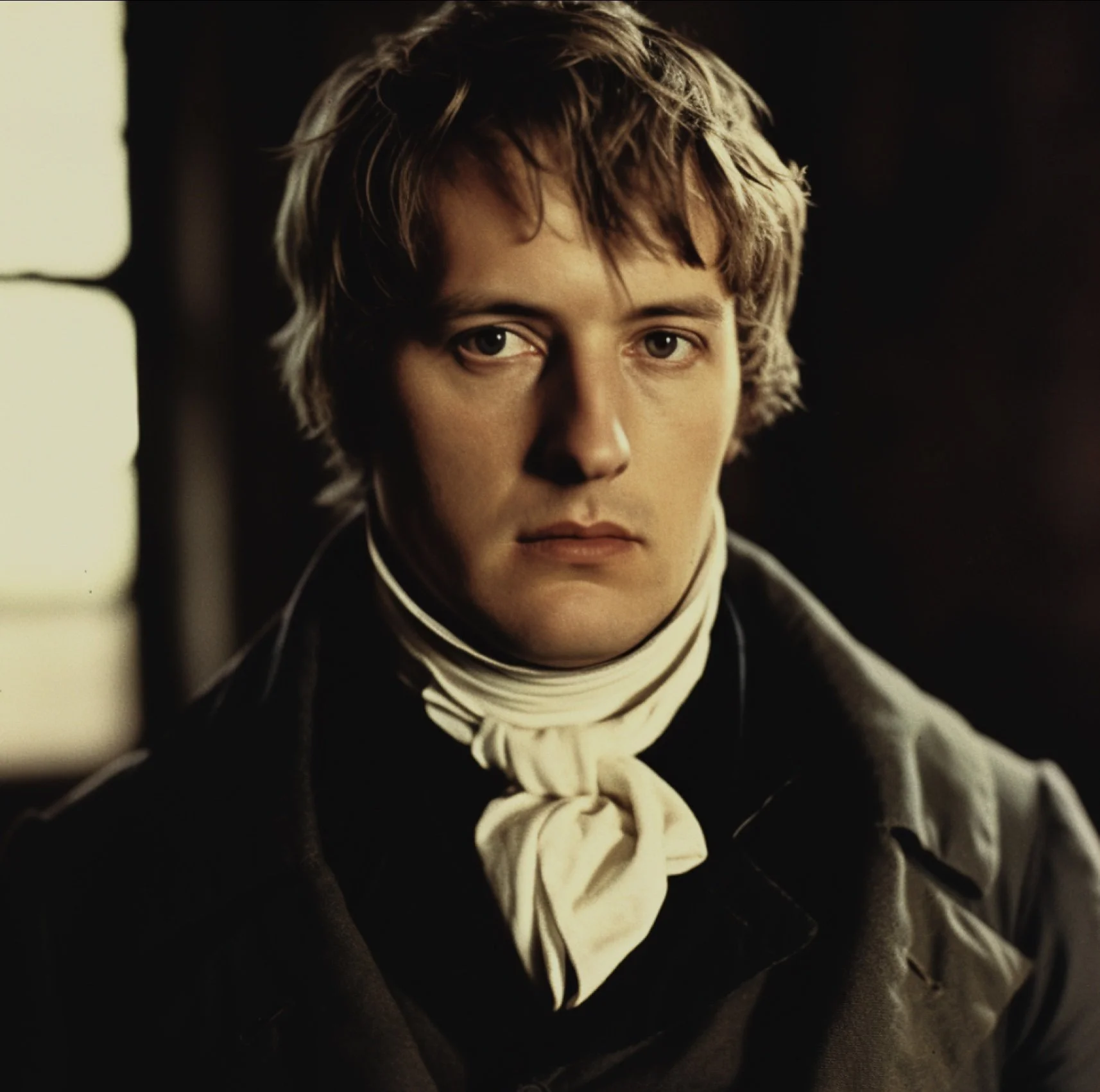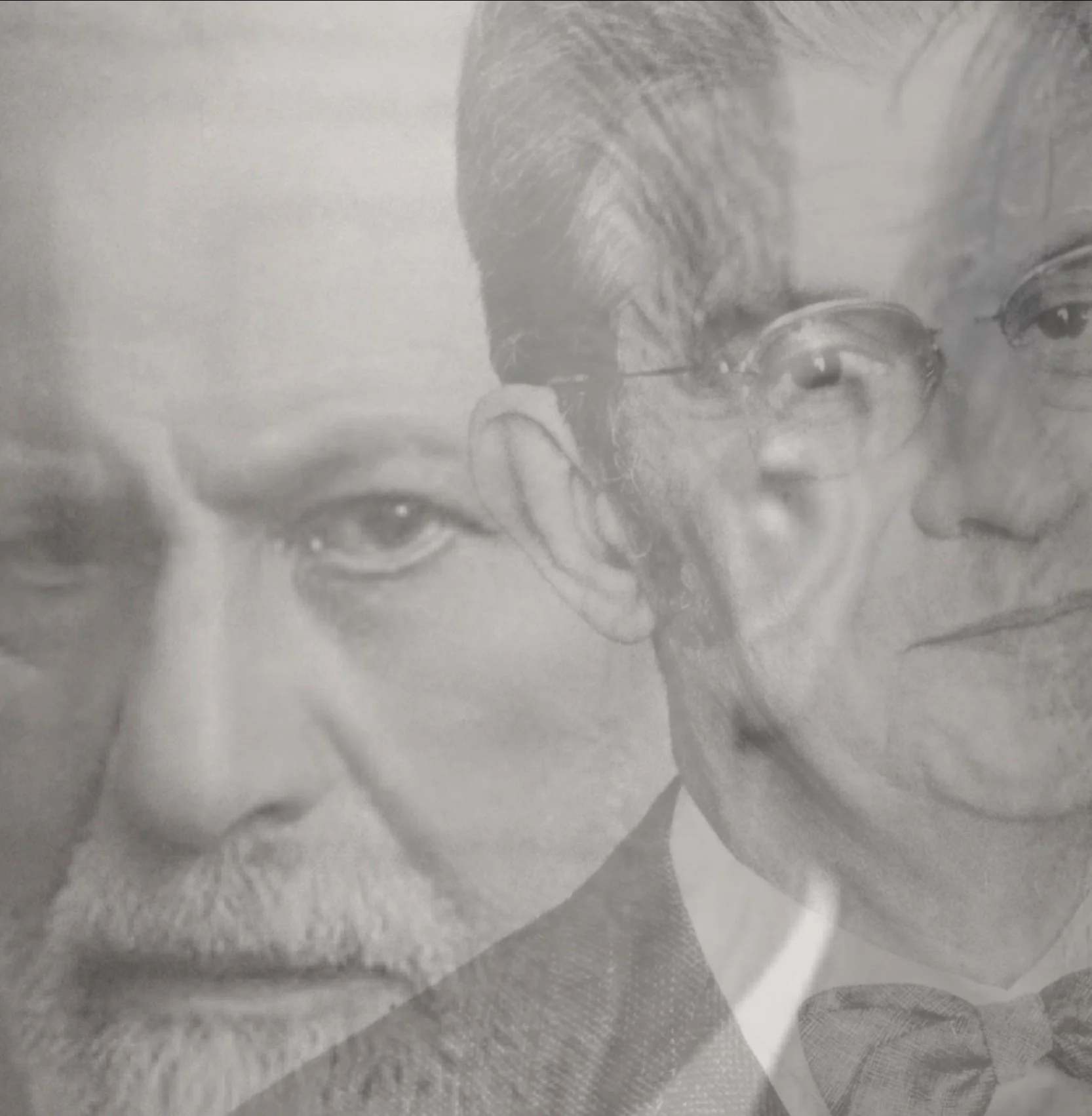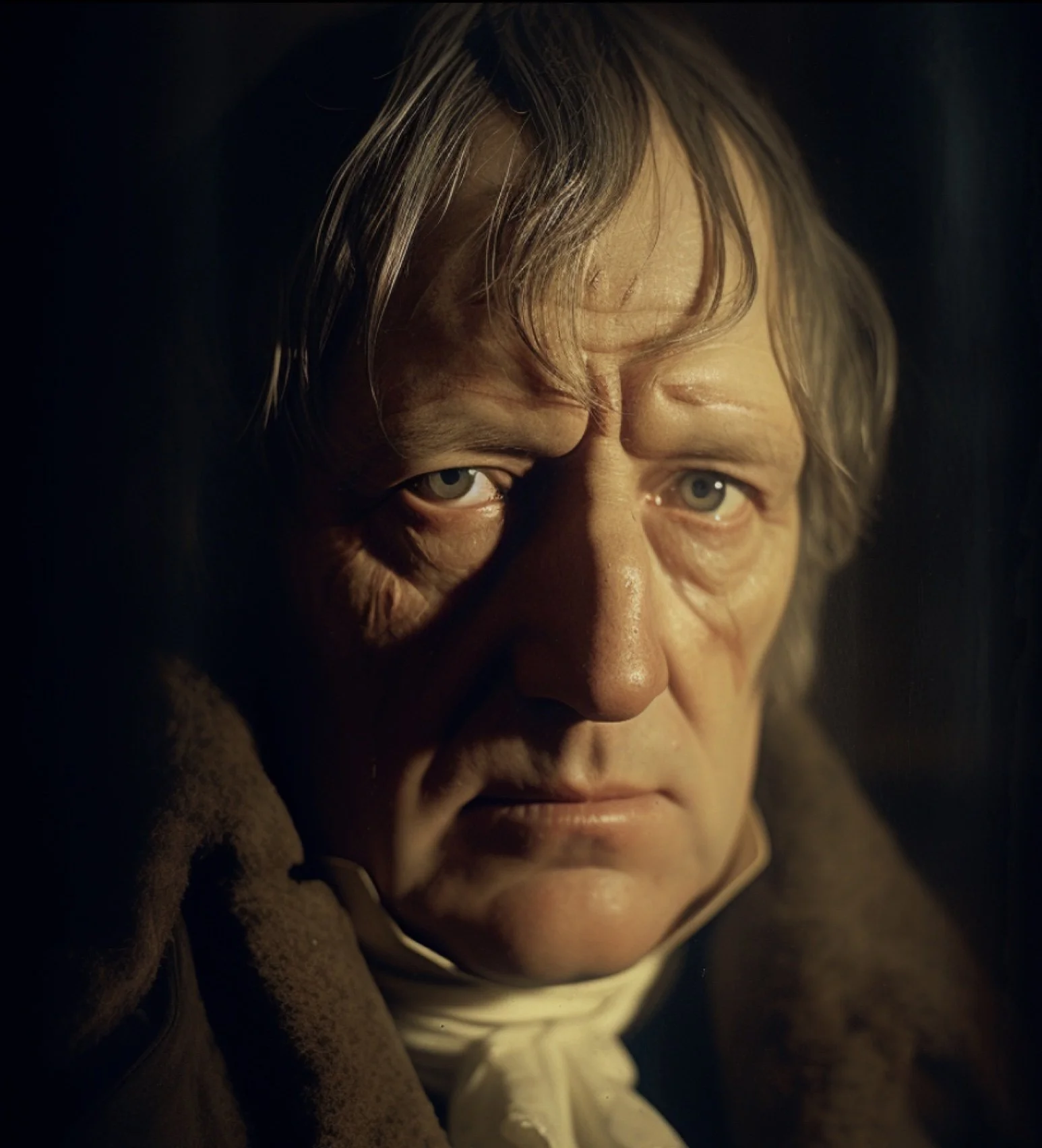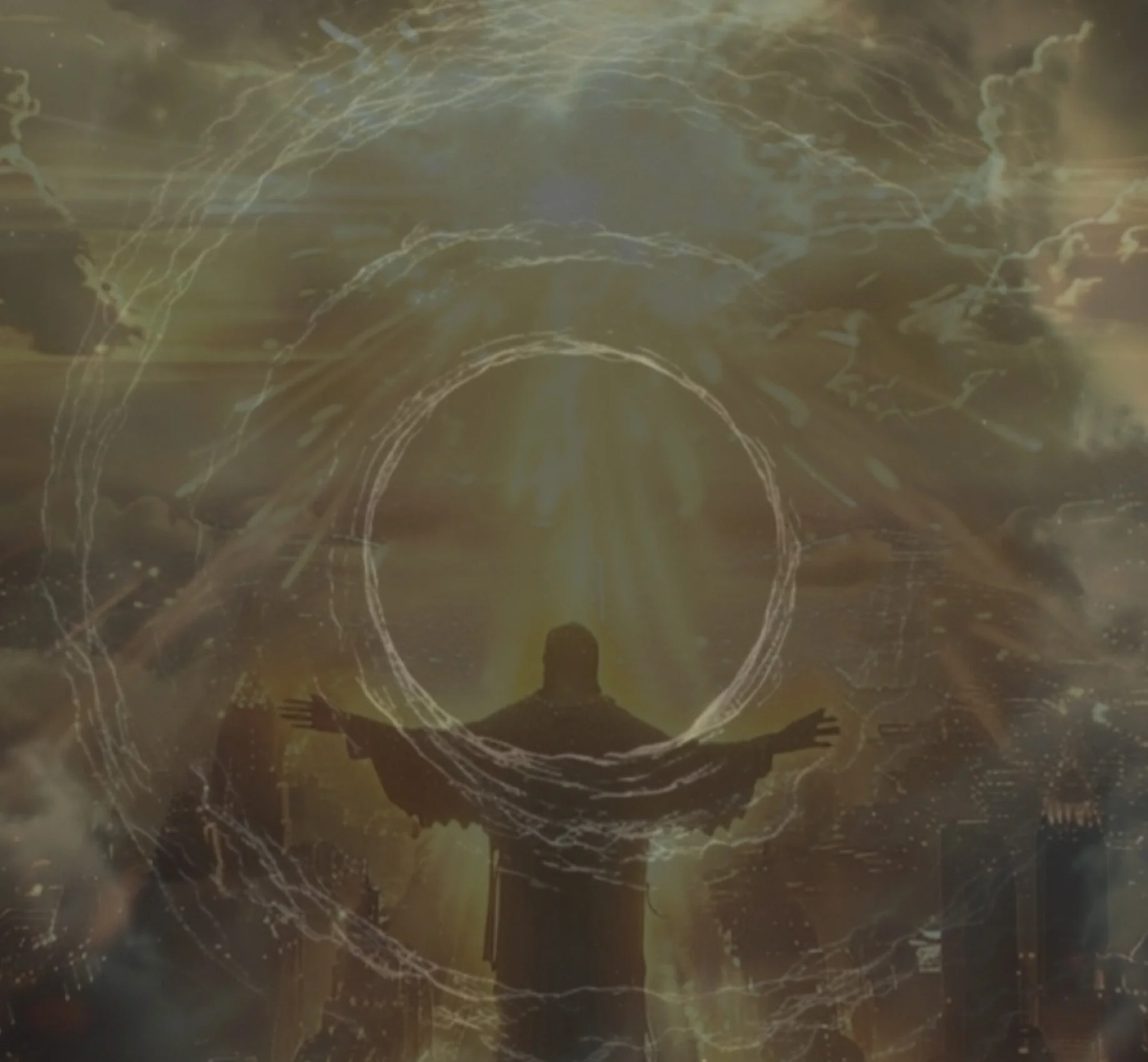
Lacan’s Écrits.
Core writings from the controversial psychoanalyst.

Lacan’s core writings are the first innovative approach to an understanding of subjectivity, in historical, scientific, philosophical, and theological context, after Freud’s psychoanalytic revolution: the discovery of the unconscious.

The unconscious is the discovery that consciousness is not equal to the psyche, i.e. our psyche includes domains of sense, perception, understanding, and even reason, that is constitutively ‘un’ (not) conscious.
This has major consequences for how we understand the history of human knowledge and belief, as well as how we construct new disciplines, approach self-development, build social communities, and think about self and reality.
Check our reviews on
Écrits course, general questions:
What is Lacan’s relationship to psychoanalysis?
Lacan’s relationship to the psychoanalysis of his day was filled with tension and antagonism. In particular, Lacan was against the general tendency of the psychoanalytic institutions of his day to close Freud’s discovery into what he called ‘ego psychology’.
What did Lacan mean by ‘Return to Freud’?
Lacan’s ‘Return to Freud’ is trying to avoid superficial negations of Freud, instead emphasising ‘sublation’ of Freud: staying true to his discovery of the unconscious via close reading, while innovating in both method and concept for challenges of our day.
Was Lacan a obscurantist charlatan?
Yes. Lacan’ s writings are incredibly obscure, even impenetrable. He is also considered a charlatan, both inside many analytic traditions, and outside of them, particularly in scientific fields. This course aims to embrace this dimension as positive.
Was Lacan scientific or religious?
Lacan was inspired by the sciences of his day, particularly developments in structural anthropology/linguistics; generally he is recognised as an atheist, but was a very pious child (‘product of priests’), and his religious views deviated from Freudian atheism.
Who were Lacan’s major contemporaries?
In his early years, he was involved with the Surrealist movement (Salvador Dali, Pablo Picasso, Georges Bataille etc.), in his middle years, he had professional support from anthropologist Claude Levi-Strauss and philosopher Louis Althusser.
What’s the difference between Écrits/Seminars?
The Seminars are his oral teachings, conducted every week during the school year in-between 1953 and 1980 to an ever larger public, in contrast, the Écrits are a collection of his written theoretical texts, often perceived as more difficult, even elitist.
Is Lacanian analysis relevant today?
Lacanian analysis remains an important yet marginal force within the field of psychoanalysis/therapy today, the main practical branch was extended through the work of Jacques-Alain Miller, who Lacan dubbed as the only person who knew how to read him.
How has Lacan influenced modern philosophy?
Lacan’s work has had a profound and far-ranging impact on continental philosophy, influencing some of the most important active/living philosophers, including Julia Kristeva, Alain Badiou, Éric Laurent, Slavoj Žižek, Alenka Zupančič, and many others.
Your teacher
∞
Your teacher ∞
Dr. Cadell Last (Ph.D)
Cadell Last (Ph.D.) is a philosopher with a background in anthropology, history and interdisciplinary studies. He started his intellectual journey in a type of perplexity and wonder about the human condition. This journey was first mediated by an interest in temporality: the whole history of the universe and its potential far future, resulting in his doctoral thesis: Global Brain Singularity. His work has gradually gravitated towards deep focus on thinking the present, inclusive of all its knots, cracks and negativities. In this gravitation, there has been a recognition of the importance of foundational discourses in the history of philosophy, psychoanalysis and existentialism, which is his primary motivation in establishing Philosophy Portal.
Guest Teachers
∞
Guest Teachers ∞
-

Todd McGowan
Todd McGowan is a professor at the University of Vermont, widely considered as an expert in G.W.F. Hegel’s philosophy, and a prolific writer in cultural studies and film committed to the theoretical exposition of questions about existence, psyche and society that can contribute in to the creative process.
His classes focus on major figures, Hegel, Marx, Freud, and he delves into how their ideas manifest themselves in the most important films, television series, and other media to provide a new way of thinking about spectator and image as founded on desire.
-

Peter Rollins
Peter Rollins is an author, philosopher, storyteller, producer and public speaker who has gained an international reputation for overturning traditional notions of religion and forming “churches” that preach the Good News that we can’t be satisfied, that life is difficult, and that we don’t know the secret.
Challenging the idea that faith concerns questions relating to belief; attacking the distinction between the sacred and the secular. It critiques theism and it sets aside questions regarding life after death to explore the possibility of life before death.
-
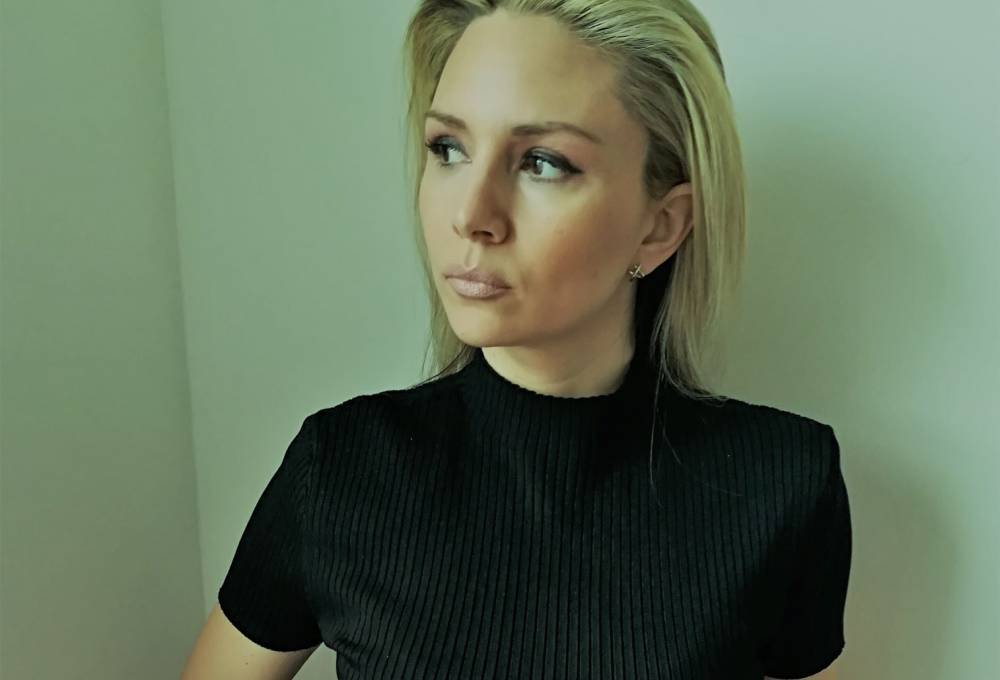
Isabel Millar
Isabel Millar is a philosopher and psychoanalytic theorist from London. Her first book is based on her doctoral thesis, The Psychoanalysis of Artificial Intelligence, and was published in 2021 in The Palgrave Lacan Series. She is currently writing her next book Patipolitics for Bloomsbury Philosophy.
Millar received her PhD in Philosophy and Psychoanalysis from Kingston University in 2021. She is an Associate Researcher at Newcastle University, Department of Philosophy and Research Fellow and Faculty at the Global Centre for Advanced Studies.
-

Richard Boothby
Richard Boothby is a professor of Philosophy at Loyola University Maryland in Baltimore, he is the author of Sex on the Couch, Death and Desire, Freud as Philosopher, Blown Away, and Embracing the Void.
Boothby’s area of speciality includes psychoanalysis, phenomenology, existentialism, and contemporary continental philosophy, and has recently taught courses focused on the foundations of philosophy, politics, and society, humanity and divinity, philosophy of language, as well as the thought of Marx, Heidegger and Nietzsche.
Guest Facilitators
∞
Guest Facilitators ∞
Dimitri Crooijmans
Dimitri Crooijmans will be leading exegetical reading spaces. He is a young philosopher mainly inspired and influenced by Hegel, Nietzsche, Lacan and Žižek. He has a podcast and blog called Actual Spirit, in which he brings the lessons of these thinkers to his creative life and spiritual practices.
Owen Cox
Owen Cox will be co-leading Real Talk spaces after guest lectures. He is the creator and founder of Technosocial, a podcast aiming to give birth to a new culture in the digital age. He is an artist who practices tantric, occult, magical knowing, and is influenced by the works of Aleister Crowley, Camille Paglia, and Julia Kristeva.
Daniel Fraga
Daniel Fraga will also be co-leading Real Talk spaces after guest lectures. He is the co-host of Technosocial, and author of Ontological Design, which forwards the principle that subjectivity should now be viewed as creative project. He is a designer influenced by the works of Gilles Deleuze, Michel Foucault, and Jacques Lacan.
Raven Connolly
Raven Connolly will also be co-leading Real Talk spaces after guest lectures. She is well-known in liminal web spaces as “voice of The Stoa,” as well as recent creator of Body Politic podcast. She is trained as an evolutionary biologist, and interested in questions of the future of sexuality, reproduction, and religion.
Course calendar
∞
Course calendar ∞
Recording / Course Material
Section 1
Section 2.1
Section 2.2
Exegetical readings, with Dimitri Crooijmans
Section 3
Guest Lecture 1, with Isabel Millar
Section 4.1
Section 4.2
Exegetical readings, with Dimitri Crooijmans
Section 4.3
Guest Lecture 2, with Richard Boothby
Section 4.4
Section 5.1
Exegetical readings, with Dimitri Crooijmans
Section 5.2
Section 6
Guest Lecture 3, with Todd McGowan
Section 7.1
Exegetical readings, with Dimitri Crooijmans
Section 7.2
Guest Lecture 4, with Peter Rollins
Concluding Reflections
Philosophy of Lack, with Daniel L. Garner, Tim Adalin, Alex Ebert
Special guests
∞
Special guests ∞
-

Philosophy of Lack
Philosophy of Lack is a podcast series featuring Daniel Garner, Tim Adalin, and Alex Ebert. The series aimed to reinvestigate foundational philosophical concepts, like Being, Atoms, Forms, and Dialogos through the psychoanalytic lens of lack. The Philosophy of Lack will return with a special private session for students at the end of the Écrits course.
-

Daniel Garner
O.G. Rose (Michelle and Daniel Garner) spent several years working collaboratively with other artists at Eunoia, a creative community they helped develop. They now live on a farm, manage a wedding venue named Mead Lake Lodge, and teach piano using visuals from the DLG Pattern Method. A finalist for the UNO Press Lab Prize and Pushcart Nominee, Rose’s creative works appear at The Write Launch, Iowa Review, Burningword, Broken Pencil, and elsewhere, with published works on Amazon.
-

Tim Adalin
Tim Adalin is a transformative philosopher and founder of Voicecraft. He shares writing inspired by a broad set of themes and questions pertaining to the nature of being, becoming and culture, as well as invitations to participate in local and online Voicecraft gatherings, expeditions and courses, along with other digital material and collaborations.
-

Alex Ebert
Alex Ebert is an incidental musician and philosopher (among too many other things, incidentally). His interest in philosophy began (unbeknownst to him) more than a decade ago, with his development of a peculiar mathematical function (magnetic zeros). Said function is now the centerpiece of his philosophy of sublation (freQ theory), and, for better or worse, serves as his platinum-selling band’s name.
Check our reviews on
Course Information
Dimitri Crooijmans of Actual Spirit on the Écrits course.






